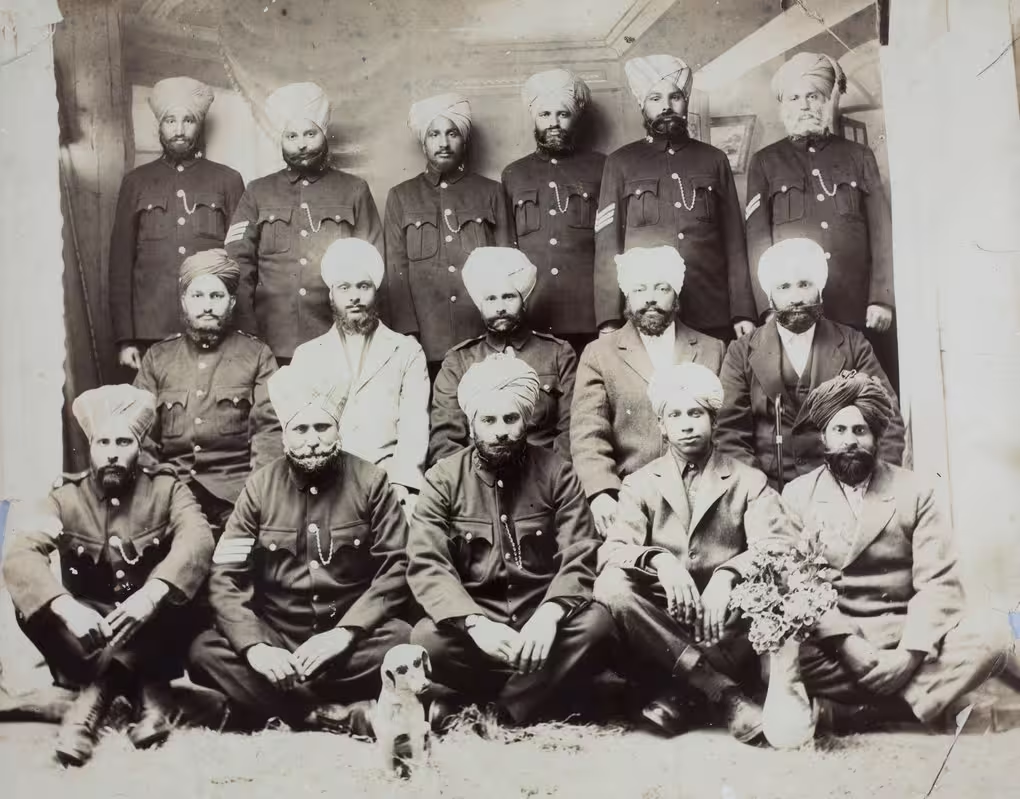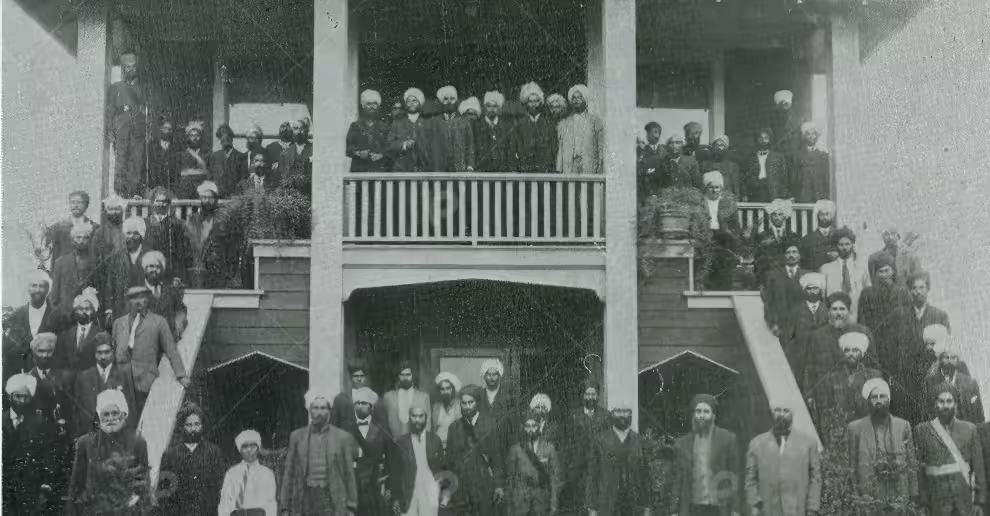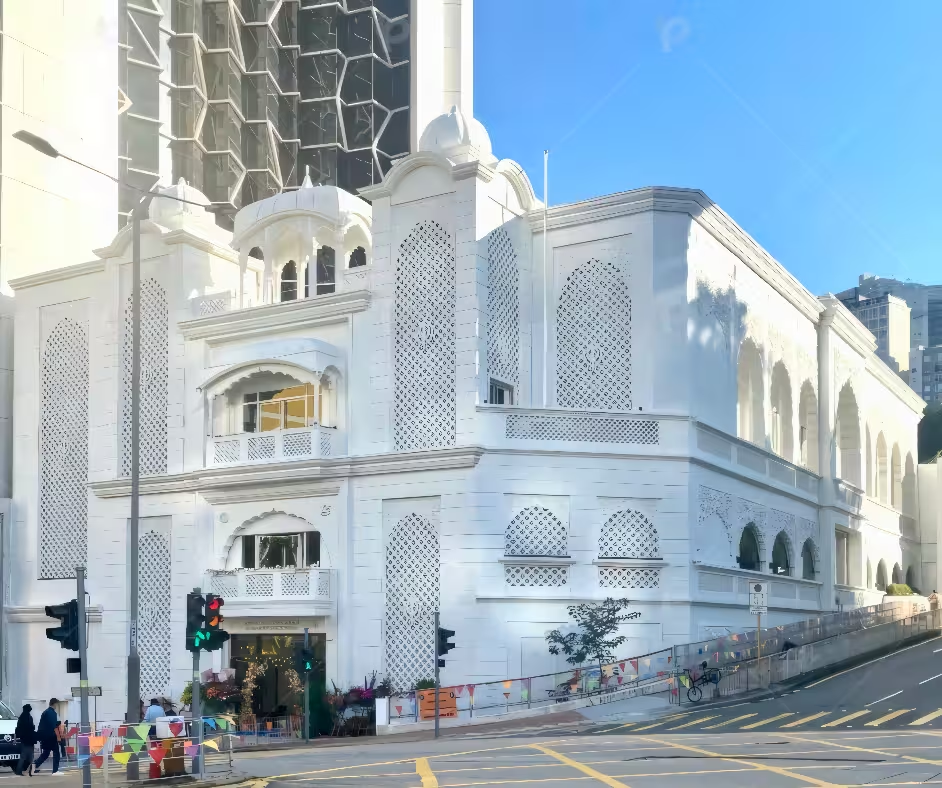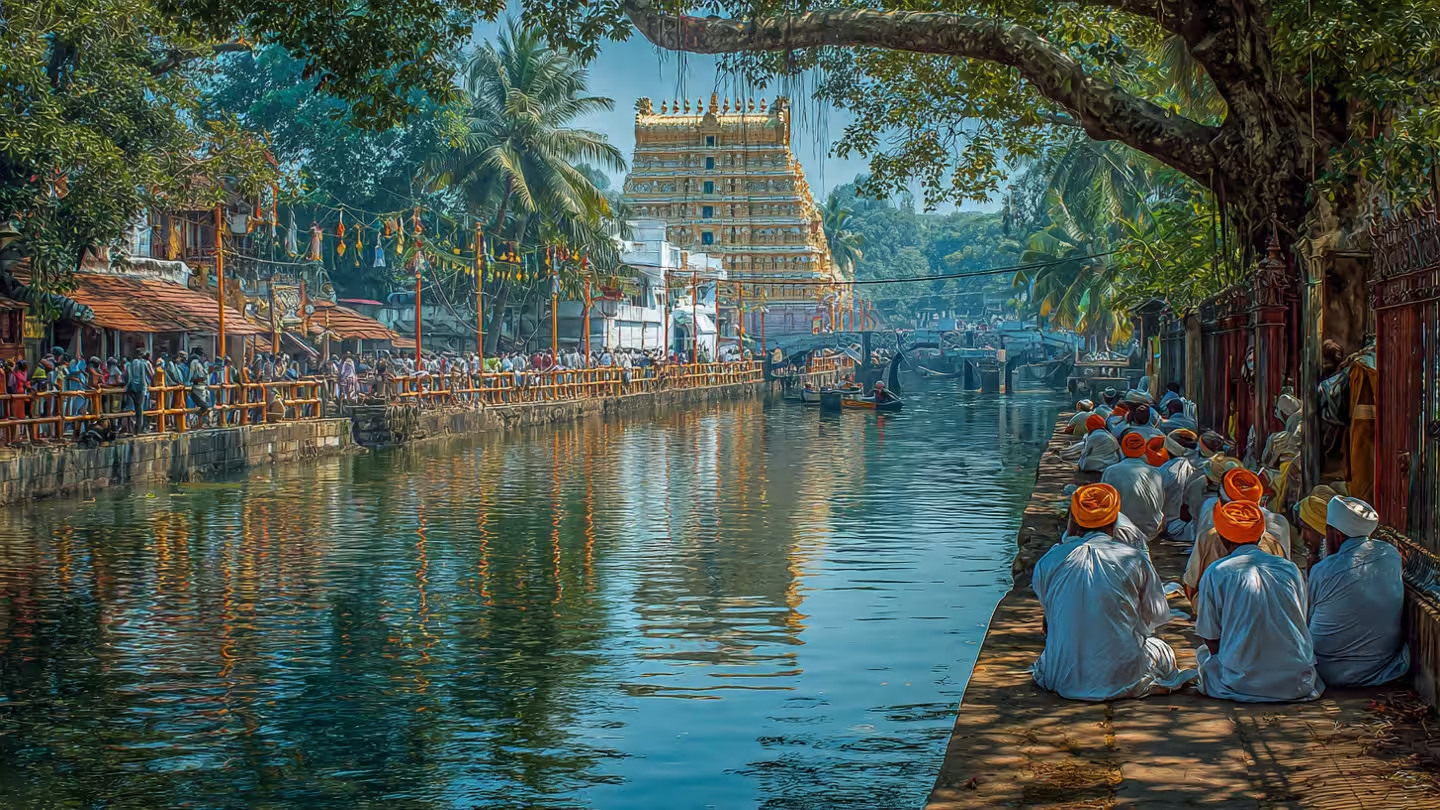Sikhs in China: A Hidden Chapter of Sikh Heritage
Hello, readers! Welcome to another intriguing exploration of Sikh heritage on GlobalSikhiWiki.com.
Imagine a turbaned Sikh policeman patrolling the bustling streets of old Shanghai, his sturdy frame a symbol of British authority, only to later whisper revolutionary secrets in the shadows of a gurdwara. This isn’t a scene from a historical novel—it’s the real, riveting story of Sikhs in China, a lesser-known chapter of the diaspora that blends duty, defiance, and devotion. Drawing primarily from scholarly books like Yin Cao’s From Policemen to Revolutionaries: A Sikh Diaspora in Global Shanghai, 1885–1945 and Swarn Singh Kahlon’s Sikhs in Asia Pacific: Travels among the Sikh Diaspora from Yangon to Kobe, we’ll uncover how a small community from Punjab left an indelible mark on China’s treaty ports. Through personal tales and pivotal events, you’ll see how these Sikhs navigated colonial webs, embraced nationalism, and preserved their faith amid foreign shores. Let’s journey back to a time when the Huangpu River echoed with Punjabi hymns and whispers of freedom.

Arrival of Sikhs in China Under the British Empire
It all began in the mid-1800s—around 1854, to be precise—when the British Empire was expanding its trade networks across Asia. As treaty ports like Shanghai and Hong Kong opened up, the British needed a reliable and disciplined police force. They turned to Sikhs from Punjab, whose martial reputation, loyalty, and physical bearing made them ideal for maintaining colonial law and order. In 1867, a contingent of Sikh policemen even arrived in Hong Kong, soon followed by the formation of a Sikh branch in the Shanghai Municipal Police around 1884 building a visible presence of Sikhs in China’s port cities Wikipedia. By 1936, the Shanghai force alone counted 558 Sikh officers—a testament to their vital role Wikipedia.
But how many Sikhs were there in China then, and now? Precise figures from the early twentieth century are hard to locate. However, by 2012–13, United Sikhs estimated the Sikh population in mainland China was around 7,500, with approximately 10,000 Sikhs in Hong Kong, totaling 17,500 across all of China CPS India Blog. In modern Shanghai, the community has dwindled to around 50 individuals, while Yiwu hosts about 120 Sikhs and Shaoxing has roughly 10 Sikh families.

The Ghadar Movement was a bold, transnational effort born in the early 1900s. Centered in North America, especially California, it was founded by Indian expatriates — many of them Punjabis, including a large number of Sikhs — determined to overthrow British colonial rule in India. Its mission was simple but dangerous: unite Indians abroad, spread revolutionary ideas, and bring the fight for independence back home.
Revolution and the Ghadar Movement
From 1913 onward, the Ghadar Party printed fiery newspapers like Ghadar in San Francisco, distributed them globally, and called upon Indians — especially soldiers — to revolt. When World War I erupted, the party saw it as the perfect moment to spark rebellion. Many Ghadarites secretly traveled from America, Canada, Southeast Asia, and even China, carrying literature, weapons, and a fierce sense of duty.
From China, Sikh policemen and dock workers were quietly involved. Shanghai and Canton (Guangzhou) were key transit hubs. These cities became discreet meeting points for passing revolutionary literature, funding shipments, and arranging safe passage for Ghadar activists. Though many names were kept hidden due to risk of execution or imprisonment, archival references mention:
The movement ultimately failed to trigger a mass uprising, but it ignited a nationalist consciousness that inspired future freedom struggles, including the Indian National Army led by Subhas Chandra Bose decades later.

Building Faith Far from Home: The Gurdwaras
Community was vital for these early migrants. Wherever they settled, they carried their faith with them. Soon, small gatherings led to the establishment of Gurdwaras — places of worship that became not only spiritual centers but also hubs for cultural continuity. For instance:
1. In Shanghai, the Dong Baoxing Road Gurdwara (opened in July 1908) stood as a proud beacon for Sikh policemen and traders Wikipediaasiasamachar.com. Though it once hosted vibrant celebrations, today it serves a different purpose — it has been converted into a residential complex and clinic, and no longer functions as a Sikh temple Wikipedia.
2. Another significant site was the Gordon Road Gurdwara (opened July 21, 1916) exclusively for Sikh policemen. Once equipped with a library, kitchen, granthi quarters, and space for 500 parishioners, its current state is dire — hidden behind market debris, with waste accumulation, foul smells, and disrepair WikipediaProfilbaru.
3. In Hong Kong, however, the Khalsa Diwan Sikh Temple in Wan Chai (established 1901) continues to thrive. It remains fully functional today, offering services, langar, and community support. Recently reopened in 2022 after a major five-year renovation, it now includes a medical centre, classrooms, and a vast kitchen that serves thousands weekly WikipediaSouth China Morning PostSikh Places.
Beyond the major cities, there are smaller Gurdwaras across mainland China — a modest shrine in Yiwu, Gurdwara Sach Dham in Keqiao (serving a mainly Sindhi congregation), and even a secret Gurdwara maintained privately in a villa in Shanghai’s Hongqiao area
Why the Sikh Community in China Dwindled Over Time
The Sikh population in China did not naturally grow the way it did in places like Canada, the UK, or the US. Instead, it went through several waves of rise and decline that eventually left only a very small community today. Here’s why:
1. Migration was never permanent
Most Sikhs in China originally arrived as British-employed policemen, soldiers, or guards in the 1800s and early 1900s. Their service was usually contract-based, and many eventually returned to Punjab or moved to British colonies like Hong Kong, Singapore, or Malaya — where better opportunities awaited. Few intended to settle permanently in mainland China.
2. Wars and political turmoil
China went through multiple upheavals in the 20th century:
The fall of the Qing dynasty (1911)
Japanese invasion (1937–1945)
Civil War and the rise of the Communist regime (1949)
China in the 20th century was a land in constant upheaval — from the fall of the Qing dynasty to Japanese occupation and the civil war between nationalists and communists. Each conflict brought insecurity for foreign communities like the Sikhs, who often became targets of suspicion or collateral victims of chaos. For many, leaving China was not a choice but a matter of survival, leading to a steady outflow of Sikh families during these turbulent decades.
3. Communist-era restrictions on religion
After 1949, religious practice was tightly controlled under the People’s Republic of China. Many gurdwaras were closed, repurposed, or fell into disrepair. The lack of religious infrastructure made it hard for Sikhs to maintain cultural identity, and many simply moved to places with more religious freedom.
4. Better opportunities elsewhere
During and after British colonial times, Hong Kong, Singapore, Malaysia, and later Canada, the UK, and the US offered more promising futures. Many Sikhs who had once been in Shanghai, Tianjin, or Canton migrated there, leaving China with almost no second or third generation to sustain the community.
5. Natural decline without replenishment
Because Sikh migration to China virtually stopped after the 1950s, and no new influx occurred even as India–China relations grew economically, the population simply dwindled over time — mostly through aging, relocation, or intermarriage — leaving only a handful of Sikhs in modern-day China.
Present day Sikhs in China
Today, the Sikh presence in China is tiny — mostly Indian expatriates, businessmen, and professionals temporarily based in cities like Guangzhou, Shanghai, and Beijing. The old historic gurdwaras are cultural relics, not active community hubs like in other countries.
Closing Thoughts
Through wars, revolutions, and the reshaping of China itself, the Sikh spirit endured. Though the community today is much smaller and less visible, the legacy remains — in old photographs of Sikh policemen in Shanghai, in the fading walls of gurdwaras tucked into busy districts, and in the stories passed down to descendants scattered across the globe. This journey of Sikhs in China is a testament to adaptability without losing essence — a reminder that wherever the Khalsa roams, seva (selfless service), faith, and courage follow.
What other hidden chapters of Sikh migration would you like us to explore next? Stay tuned, because every corner of the world holds a piece of the Sikh story waiting to be rediscovered.
-
Sikhs in Goa
Sikhs in Goa: History, Presence, and Cultural Life Welcome to Global Sikhi Wiki, your comprehensive resource for exploring Sikh history, culture, and communities. Today, we delve into the vibrant story of
Published by Pritam -
Sikhs in Iceland
Sikhs in Iceland: A Small Community in the Land of Fire and Ice Welcome to Global Sikhi Wiki, your comprehensive resource for exploring Sikh history, culture, and communities. Today, we delve
Published by Pritam -
Sikhs in Venezuela
Sikhs in Venezuela: A Journey of Faith and Identity Welcome to Global Sikhi Wiki, your comprehensive resource for exploring Sikh history, culture, and global communities. Today, we delve into the
Published by Pritam -
Sikhs in Kerala
Sikhs in Kerala: A Unique Chapter in Sikh Migration Welcome to Global Sikhi Wiki, your comprehensive resource for exploring Sikh history, culture, and communities. Today, we delve into the vibrant story
Published by Pritam -
Sikhs in Greenland
Sikhs in Greenland: A Glimpse into the Frozen Diaspora Welcome to Global Sikhi Wiki, your comprehensive resource for exploring Sikh history, culture, and global communities. Today, we delve into the
Published by Pritam -
Sikhs in Delhi
Sikhs in Delhi- Overview Delhi occupies a foundational position in Sikh history, not as a peripheral settlement but as a sacred and political site shaped during the Guru period and
Published by Pritam -
Sikhs in Shamshabad
Sikhs in Shamshabad: How a Tribal Village in Telangana, India Turned to Sikhism Welcome to Global Sikhi Wiki, your comprehensive resource for exploring Sikh history, culture, and communities. Today, we delve
Published by Pritam -
Canadian Sikh lawyer Oath
Prabhjot Singh — Canadian Sikh Lawyer Who Challenged the Mandatory Oath Who Is Prabhjot Singh? Prabhjot Singh (full name Prabhjot Singh Wirring) is a Canadian lawyer of Sikh heritage. He
Published by Pritam -
Sikhs in Ukraine
UNITED SIKHS has been a prominent humanitarian responder in Ukraine since the 2022 invasion, providing immediate relief like food, medical aid, and shelter near borders and within war-torn cities like Kyiv and
Published by Pritam -
Sikhs in Austria
Sikhs in Austria: A Flourishing Community in the Heart of Europe Welcome to Global Sikhi Wiki, your comprehensive resource for exploring Sikh history, culture, and global communities. Today, we delve
Published by Pritam -
Sikhs in Finland
Sikhs in Finland: Migration, Turban Rights, Gurdwaras Welcome to Global Sikhi Wiki, your comprehensive resource for exploring Sikh history, culture, and global communities. Today, we delve into the vibrant story
Published by Pritam -
Sikhs in Israel
Sikhs in Israel: A Hidden Chapter of Global Sikh History Welcome to Global Sikhi Wiki, your comprehensive resource for exploring Sikh history, culture, and global communities. Today, we delve into
Published by Pritam -
Sikhs in Chile
Sikhs in Chile: A Small but Vibrant Community in South America Welcome to Global Sikhi Wiki, your comprehensive resource for exploring Sikh history, culture, and global communities. Today, we delve
Published by Pritam -
Sikhs in Bermuda
Sikhs in Bermuda: A British Overseas Territory Welcome to Global Sikhi Wiki, your comprehensive resource for exploring Sikh history, culture, and global communities. Today, we delve into the vibrant story
Published by Pritam -
Sikhs in Belize
Sikhs in Belize — a small but significant thread in the Caribbean Welcome to Global Sikhi Wiki, your comprehensive resource for exploring Sikh history, culture, and global communities. Today, we
Published by Pritam -
Why a New York Street Honors a Sikh Guru
Why a New York Street Honors a Sikh Guru-Guru Teg Bahadur Ji Marg Way A Historic Honor in New York Welcome to Global Sikhi Wiki, your comprehensive resource for exploring
Published by Pritam -
Sikhs in Malaysia – From Struggle to Strength
Sikhs in Malaysia: A Tapestry of Courage, Faith, and Unyielding Spirit Welcome to Global Sikhi Wiki, your comprehensive resource for exploring Sikh history, culture, and global communities. Today, we delve
Published by Pritam -
Sikhs in France
Sikhs in Malaysia: A Tapestry of Courage, Faith, and Unyielding Spirit Welcome to Global Sikhi Wiki, your comprehensive resource for exploring Sikh history, culture, and global communities. Today, we delve
Published by Pritam -
Sikhs in Fiji
Sikhs in Fiji: A Journey of Resilience and Contribution in Modern Oceania Welcome to Global Sikhi Wiki! In this blog post, we explore the vibrant history and enduring legacy of
Published by Pritam -
Sikhs in Germany
Sikhs in Germany – Building Faith and Community in Modern Europe Germany, the land of poets, philosophers, and thinkers, is home to one of the lesser-known yet deeply rooted Sikh
Published by Pritam -
Sikhs in Japan
Sikhs in Japan : Small Community, Big Stories Among all the countries I’ve studied, Japan is perhaps the first where I found no illegal Sikh immigration network — just a
Published by Pritam -
Sikhs in Argentina
Sikhs in Argentina: Bibiana Jasbe Singh Kaur Born in Argentina, Bibiana straddles two identities. Though her Sikh ancestors forbade beef, she acknowledges that at social events and in local culture,
Published by Pritam -
The Heartbreaking Journey of Harjit Kaur
The Heartbreaking Journey of Harjit Kaur In the dusty villages of Punjab, where the mustard fields sway like whispers of forgotten dreams under the relentless Indian sun, Harjit Kaur was
Published by Pritam -
Sikhs in Mexico
Sikhs in Mexico: Forgotten Journeys and Resilient Roots By [ Global Sikhi Wiki Team] | Published on GlobalSikhiWiki.com | September 23, 2025 IST It was the early 1900s. Ships left
Published by Pritam -
The Bitter Exodus of Sikhs from Afghanistan
The Bitter Exodus of Sikhs from Afghanistan Picture this: The sun rises over Kabul's ancient bazaars in the 1970s, where the air hums with the chatter of turbaned Sikh traders
Published by Pritam
-
 Sikhs in Goa
Sikhs in Goa
-
 Sikhs in Iceland
Sikhs in Iceland
-
 Sikhs in Venezuela
Sikhs in Venezuela
-
 Sikhs in Kerala
Sikhs in Kerala
-
 Sikhs in Greenland
Sikhs in Greenland
-
 Sikhs in Delhi
Sikhs in Delhi
-
 Sikhs in Shamshabad
Sikhs in Shamshabad
-
 Canadian Sikh lawyer Oath
Canadian Sikh lawyer Oath
-
 Sikhs in Ukraine
Sikhs in Ukraine
-
 Sikhs in Austria
Sikhs in Austria
-
 Sikhs in Finland
Sikhs in Finland
-
 Sikhs in Israel
Sikhs in Israel
-
 Sikhs in Chile
Sikhs in Chile
-
 Sikhs in Bermuda
Sikhs in Bermuda
-
 Sikhs in Belize
Sikhs in Belize
-
 Why a New York Street Honors a Sikh Guru
Why a New York Street Honors a Sikh Guru
-
 Sikhs in Malaysia – From Struggle to Strength
Sikhs in Malaysia – From Struggle to Strength
-
 Sikhs in France
Sikhs in France
-
 Sikhs in Fiji
Sikhs in Fiji
-
 Sikhs in Germany
Sikhs in Germany
-
 Sikhs in Japan
Sikhs in Japan
-
 Sikhs in Argentina
Sikhs in Argentina
-
 The Heartbreaking Journey of Harjit Kaur
The Heartbreaking Journey of Harjit Kaur
-
 Sikhs in Mexico
Sikhs in Mexico
-
 The Bitter Exodus of Sikhs from Afghanistan
The Bitter Exodus of Sikhs from Afghanistan